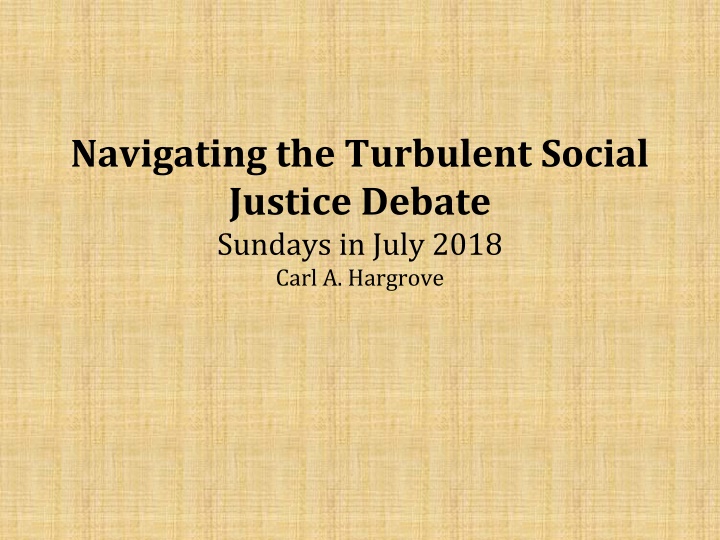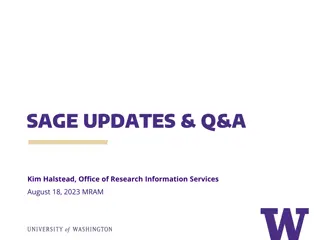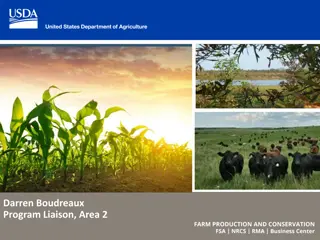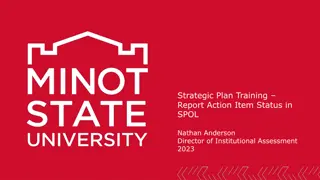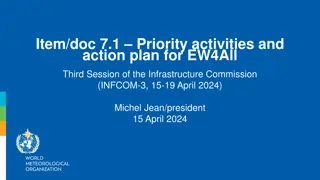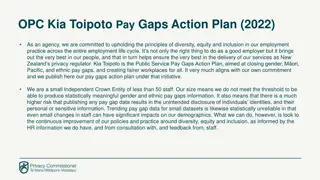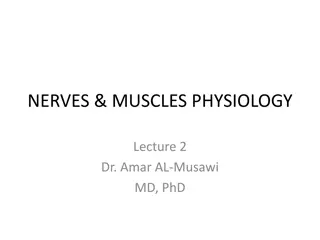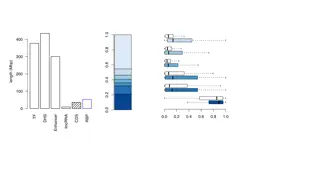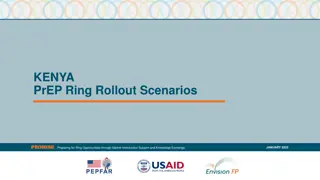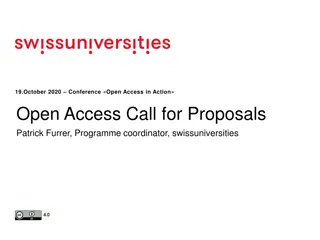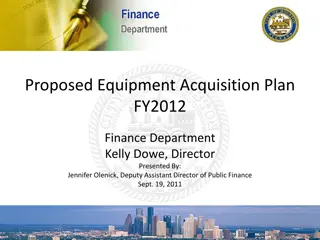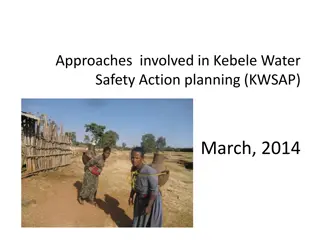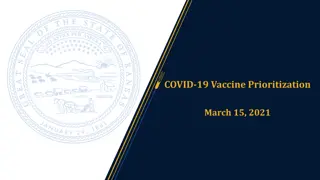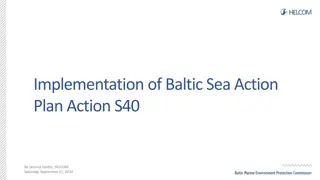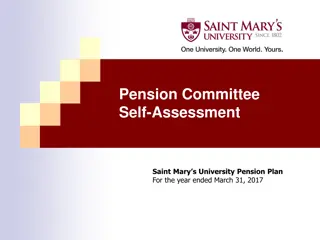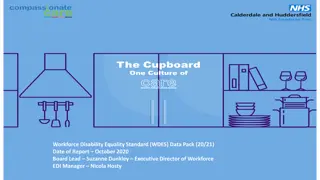Optimizing Training with Prioritized Action Plan
Develop a prioritized action plan to optimize training by cutting time with minimal effort. Identify risks, fears, uncertainties, and set goals based on benchmarks. Utilize a methodical approach to map areas for gains, prioritize action items, and set time-based goals. Evaluate strengths, weaknesses, opportunities, and threats to create a gains matrix for improvement and prioritize tasks effectively.
Download Presentation

Please find below an Image/Link to download the presentation.
The content on the website is provided AS IS for your information and personal use only. It may not be sold, licensed, or shared on other websites without obtaining consent from the author.If you encounter any issues during the download, it is possible that the publisher has removed the file from their server.
You are allowed to download the files provided on this website for personal or commercial use, subject to the condition that they are used lawfully. All files are the property of their respective owners.
The content on the website is provided AS IS for your information and personal use only. It may not be sold, licensed, or shared on other websites without obtaining consent from the author.
E N D
Presentation Transcript
Navigating the Turbulent Social Justice Debate Sundays in July 2018 Carl A. Hargrove
A renewal in social justice or a missional/holistic gospel represents the biggest shift in evangelicalism in the last century (Scot McKnight, Jesus Creed blog, January 29, 2010)
The issues being discussed in evangelical circles have led to divisive speech, revelations of varying methods in applying Scripture, and pose a concern for the integrity of the gospel Social Media is often a breeding ground for argumentum ad hominem
Defining Terms If one is going to engage in profitable communication, particularly when the topic of discussion has the potential for confusion and polarization, it is imperative that terms are understood. In the social justice/racial reconciliation debate, the words used are not consistently applied or defined. Some may be described as fluid with the ensuing result of miscommunication. This results in conversation that often speaks pass the other, confuses the audiences, and stalemates dialogue. I concede that many terms and concepts are by nature fluid; however, others must be grounded with some level of consistency.
There is also the concern that terms which should be acceptable for more conservative voices to use, or even defend are regulated to the other side and any use of them automatically identifies those who use them as leftist or the pejorative phrase of the moment. This approach moves in both directions, in that, those who do not fully accept the position of social justice advocates are considered insensitive blinded to their white privilege not woke or other broad sweeping labels.
biblical justice and social justice (a sample of Scriptures that must be understood Matt 28:19-20; 25:31-46; Luke 10:25-37; Isa 58; Micah 6:8; Amos 5; Matt 22:39 [Rom 13:9; Jam 1:27 and 2:8]; Jer 22; Gal 6:10).
Striving for biblical and logical consistency? The no adjective argument as an example The out of context usage The individual illegitimacy argument The wrong by association argument
Social justice may be broadly understood as the fair and compassionate distribution of the fruits of economic growth. (United Nations)
A state or doctrine of egalitarianism (Egalitarianism defined as 1: a belief in human equality especially with respect to social, political, and economic affairs; 2: a social philosophy advocating the removal of inequalities among people) Merriam-Webster Dictionary The fair and proper administration of laws conforming to the natural law that all persons, irrespective of ethnic origin, gender, possessions, race, religion, etc., are to be treated equally and without prejudice. See also civil rights. Business Dictionary
The distribution of advantages and disadvantages within a society Dictionary.Com justice exercised within a society, particularly as it is exercised by and among the various social classes of that society. A socially just society is defined by its advocates and practioneers as being based on the principles of equality and solidarity; this pedagogy also maintains that the socially just society both understands and values human rights, as well as recognizing the dignity of every human being. Wikipedia
Social Justice is the virtue which guides us in creating those organized human interactions we call institutions. In turn, social institutions, when justly organized provide us with access to what is good for the person, both individually and in our associations with others. Social justice also imposes on each of us a personal responsibility to to work with others to design and continually perfect our institutions as tools for personal and social development - Center for Economic and Social Justice
Social justice is the view that everyone deserves equal economic, political and social rights and opportunities. National Association of Social Workers
Social Justice. A socially just world meets everyones basic needs (food, housing, health care, education, job, social security) in a dignified way; treats people from every background with dignity and respect; supports the development of all people to their full potential; guarantees equitable distribution of resources; makes sure all people are physically and psychologically safe and secure; and ensures everyone has a voice in the decisions that affect them. (adapted from Class Action by www.act4socialjustice.com accessed 5/16/18)
the fair, moral, and impartial treatment of all persons, especially in law. Includes concepts of right relationships and equitable distribution of resources. (from the Reformed Church of America, cited in DeYoung, Kevin. What Is the Mission of the Church?: Making Sense of Social Justice, Shalom, and the Great Commission, 181)
Definitions Social Justice Biblical Justice is the obligation of every believer as emulators of God to act in a manner toward our fellow man that is consistent with the heart of God. If we believe that biblical justice is not limited to body life but must be lived in society as an application of the second commandment then social justice is not antithetical to biblical justice but a complement to it.
But the examination of the main social justice texts has shown that justice is a much more prosaic category in the Bible. Doing justice means not showing partiality, not stealing, not swindling, not taking advantage of the weak because they are too uninformed or unconnected to stop you. DeYoung, Kevin. What Is the Mission of the Church? (176).
In short, biblical justice takes place not only in the church but society. Said differently, because injustice is a consequence of sin, and sin is expressed in societal contexts, the church is called to speak against the sin/injustice of society. It is called to social concern. Caution: There should be a reluctance in using the term because of the ideological associations with the concept.
Cultural Marxism Its goal is to find a medium between Capitalism and Genuine Socialist Marxism. These principles would permeate the culture which in turn bring about the genuine equality in society. Does it promote dialogue by labeling some as such? Especially, since many have no intention to implement such a cultural coup. However, we should always remind ourselves that lack of intention does not remove guilt or remove the consequence(s) of the action.
Racism and Racialization The deeply held belief that the ethnicity of a particular person or people can justify the determination of superiority resulting in the practice of discrimination, segregation, or unjust treatment. Mark Tatlock, Racism Issues [short paper] Racism serves the purpose of maintaining white supremacy and privilege. Racism by whites against people of color is not only those individual acts of hate, but also a system of exclusion, discrimination and criminalization, which ensures that the elites (while mostly white, the elites are now people of color as well) can maintain their power. Race Prejudice + Power = Racism. (ACT for Social Justice)
Racial unity and Reconciliation The ability of races to live under the divine order of God as they recognize their common bond as creatures. Striving to set aside any past injustices that have caused division and seek harmonious relationships with each other. Biblically, this has taken place between Jews and Gentiles and will take place in the future age. Limits of the reconciliation proposed today
Race is a made up social construct, and not an actual biological fact, that artificially divides people into distinct groups based on characteristics such as physical appearance, ancestral heritage, cultural affiliation, cultural history, ethnic classification, and the social, economic, and political needs of a society at a given time. (Teaching for Diversity and Social Justice) Biblically, there is but one race which has been divided into varying ethnic/cultural groups Using race is not wrong, and it does not necessarily progress dialogue by denying that race exists. If everyone were convinced that there was one race, there would still be clear divisions based on culture. A person may choose to substitute racism with culturalism, ethnicism, or melanism
multiethnicity and diversity Diversity is a concept that encompasses acceptance and respect for the uniqueness of each individual. Each person is impacted by many things in life including the social group they are born into or in some cases have chosen race, ethnicity, gender, sexual orientation, socio-economic status, age, physical abilities, religious beliefs, political beliefs, other ideologies. Diversity practice is the process of understanding each other and moving beyond simple tolerance to embracing and celebrating the rich dimensions of diversity contained within each individual. (adapted from University of Oregon, cited in act4justice.com)
orthopraxy, balanced gospel, complete gospel, holistic gospel What is intended by this language and the connection to the 2nd commandment has led many missions organizations into a social gospel. Note: The integrity of the gospel measure is not changed (man s need for reconciliation and God s exclusive provision through Christ to provide the means) based on the church s response to social needs. However, its testimony in the world may be. The reality of poverty in society does necessitate injustice in all cases
Woke This is perhaps the most subjective of terms used in the debate. Its application/definition is based on the expectations of the individual engaged in the exchange or observation. Presently, it is the idea that those who are WOKE are sensitive to the injustices in the world and church, and they see the proposed cause and effect.
White Privilege o Apartheid created privilege o Slavery created privilege o Jim Crow Laws created privilege o Unjust Labor Laws created privilege o The Aristocracy Advantage o The Economic Advantage o The Professional Athlete Advantage o The Personality Advantage o The Network Advantage o The Cast-System Advantage o The American Citizenship Advantage Privileges exists, and some linger because of previous injustices, present prejudices that still affect society. They are also created by societal values (the athlete privilege). But WP can unfairly imply undeserved or unearned.
Marginalized People The breath of marginalized people has become extremely vast and as a result, may have drawn attention from those who are truly marginalized.
Critical Race TheoryCRT First, racism is ordinary, not aberrational normal science, the usual way society does business, the common, everyday experience of most people of color in this country. Second, most would agree that our system of white-over- color ascendancy serves important purposes, both psychic and material, for the dominant group. The first feature, ordinariness, means that racism is difficult to address or cure because it is not acknowledged. Color-blind, or formal, conceptions of equality, expressed only in rules that insist only on treatment that is the same across the board, can only remedy only the most blatant forms of discrimination, such as mortgage redlining or an immigration dragnet in a food-processing plant that targets Latino workers or the refusal to hire a black Ph.D. rather than a white college dropout, which stand out and attract our attention. Delgado, Richard. Critical Race Theory (Third Edition): An Introduction (Critical America) (p. 8). NYU Press. Kindle Edition.
A third theme of critical race theory, the social construction thesis, holds that race and races are products of social thought and relations. Not objective, inherent, or fixed, they correspond to no biological or genetic reality; rather, races are categories that society invents, manipulates, or retires when convenient. People with common origins share certain physical traits, of course, such as skin color, physique, and hair texture. But these constitute only an extremely small portion of their genetic endowment, are dwarfed by what we have in common, and have little or nothing to do with distinctly human, higher-order traits, such as personality, intelligence, and moral behavior. That society frequently chooses to ignore these scientific truths, creates races, and endows them with pseudo- permanent characteristics is of great interest to critical race theory. Ibid. 9
2. Speaking to the core issues Because the church has a responsibility to address societal ills biblical justice is a call to speak to the application of justice in society. If this is not the case, then the church should limit its voice to the edification of the body and never speak to the ills of society publicly. The call to be salt and light occurs through individual testimony and corporate statement. Considering the place of support for ministries such as abortion prevention, homelessness, and poverty
3. Avoiding unnecessary alienation and promoting theological convictions Often discussions, writings, or personal interactions lack a mature theological paradigm. In the midst of overused and sweeping statements (leftist, Marxist, liberal, victim, false teacher, WP don t get it, ) is underused theology. 1) Providence and the issue of MLK
2) Sovereignty and the African diaspora o God s sovereignty rules over all creation (Ps 103:19) o God uses good and evil for His glory and man s benefit (Gen 50:20; Job 37:13; Rom 8:28) o Sovereignty harmonizes God s freedom and man s culpability (biblical examples: exiles and the captor nations, Christ s passion and His persecutors, the Church s persecution and its persecutors) o A belief in sovereignty is not a scapegoat for passivity or indifference to the evil ensued by mankind.
3) Compassion and the consequences of injustice in all forms (James 1:27; 2:1-7; Gal 6:10) An avenue of compassion is understanding the interpretive grid of others There are differences in cultural experiences There are differences in life experiences o With authority figures o With worldview exposure o With family upbringing o With church experience o With undeniable prejudice Based on individual, family, and ethnic/corporate experience Many evangelicals don t understand the power of common experience. The frustration of how there can be such varying degrees of interpretation must be addressed with the goal of providing a learning curb for both sides.
4) Intersectionality, Union with Christ, and the priority of the body Everyone has potentially conflicting, overlapping identities, loyalties, and allegiances .the examination of race, sex, class, national origin, and sexual orientation and how their combination plays out in various settings . Individuals like these operate at an intersection of recognized sites of oppression CRT, 11, 58 The priority of the spiritual family does not call for indifference to biological and ethnic family, but this threefold order must be maintained (Matt 10:35, 37; Rom 9:3; Gal 3:28; 1 Cor 12, Eph 4:1-6; Rev 5:8-10) Of course, we reject any orientation that contradicts Scripture.
5) Gospel power attained through clarity as the hope of society (Rom 1:16) 6) Orthopraxy and the call to be lights (Matt 5:13-16; Mk 9:50; Gal 6:10; Phil 2:15; 1 John 3:17)
7) Ecclesiology and the Great Commission priority (Matt 28:19-20) But here justice means doing what is fair, not making outcomes the way we think they should be. Our contention is that social justice in the Bible is not an achieved result but equal treatment and a fair process. DeYoung, Kevin. What Is the Mission of the Church?: Making Sense of Social Justice, Shalom, and the Great Commission (p. 146). Crossway. Kindle Edition.
8) Hamartiology and mans inability for comprehensive societal justice (Jer 17:15; Eph 2:1-3) 9) Truth and the moving scale in church and society (John 17:17; 18:37-38; 2 Tim 3:1-7) If you have any questions, feel free to contact me at chargrove@gracechurch.org
